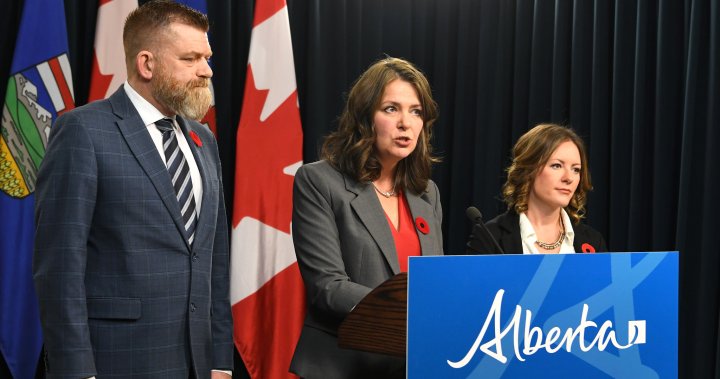Alberta Premier Danielle Smith is angry over Ottawa’s new greenhouse gas emissions cap, calling it a violation of Canada’s constitution and a “deranged vendetta” against the oil-and-gas producing province. The cap would require a one million barrel a day production cut by 2030, jeopardizing the province’s most important industry. Smith plans to challenge the cap in court, as she believes the emission targets are unrealistic and will harm the economy and social programs.
Federal Environment Minister Stephen Guilbeault announced regulations requiring oil and gas producers in Canada to cut their greenhouse gas emissions by about one-third over the next eight years. The regulations aim to fulfil a 2021 election promise to combat climate change. Guilbeault defended the policy against criticism from conservative leaders like Smith, stating that fighting climate change takes political courage and requires the implementation of existing technology like carbon capture and storage.
The Montreal Economic Institute (MEI) predicts that the emissions cap could cost 112,900 Canadian jobs by 2040 and will have a negligible effect on the environment. Upstream oil and gas operations accounted for 31% of Canada’s total emissions in 2022, with emissions already falling by 7% between 2019 and 2022. The cap does not dictate how companies should meet the target, but the government estimates that methane reduction and carbon capture and storage technologies will contribute to the reductions.
Industry stakeholders respond to the emissions cap announcement with skepticism, warning that it will harm the sector and create uncertainty for investors. They argue that the cap could drive cuts in oil and gas production, making Canada less competitive and leading to economic decline. The Canadian Association of Petroleum Producers (CAPP) also criticizes the cap, stating that it will drive away investment and result in lower production, exports, jobs, GDP, and government revenues.
Pathways Alliance, a consortium representing 95% of Canada’s oil sands production, believes the emissions cap will hinder long-term investments and make Canada less competitive. They argue that the cap will not impact global oil demand and will simply shift production to other countries. Environmental groups like Sierra Club Canada support the federal government’s move, emphasizing the urgency of strong climate policies. The regulations are set to come into force in 2026 after the next federal election.















